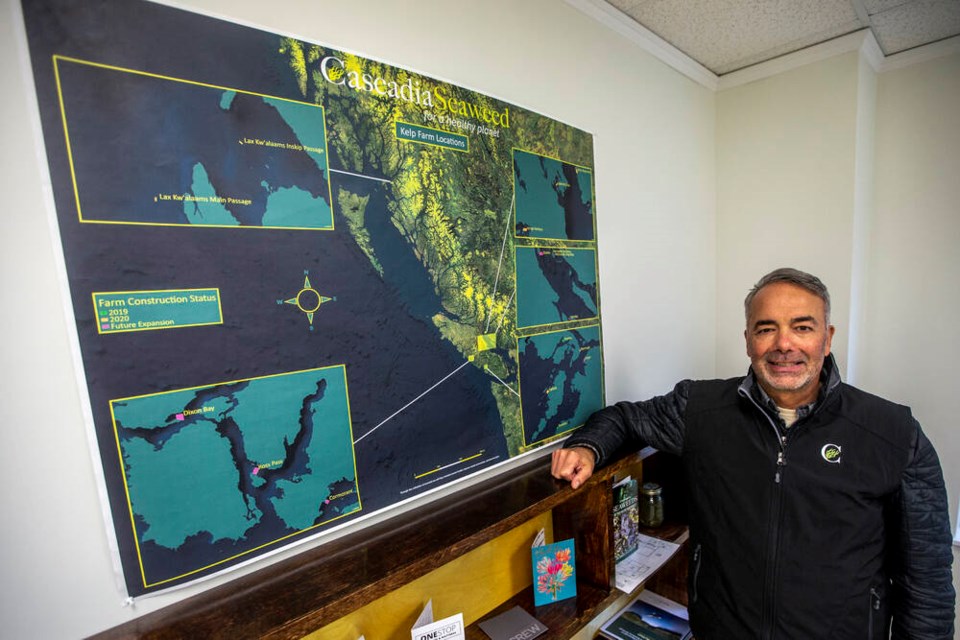Victoria’s Cascadia Seaweed will be on the world stage this coming week as it presents at the United Nations global climate conference in Glasgow.
The two-year-old company, which produces food from seaweed it grows in beds it has established around Vancouver Island — not naturally occurring kelp beds — sees the opportunity as a chance to make the case that seaweed can be part of climate-change solutions.
Cascadia chairman Bill Collins said it is a huge step for the Sidney company and a chance to make the pitch on the use of seaweed cultivation for natural carbon mitigation.
“Basically, it’s the chance to shake the hand of the global business community and put B.C. on the map,” he said.
The U.N. conference, known as COP26 (the 26th Conference of the Parties), brings together representatives from countries around the world to discuss global climate issues. The 12-day affair will host world leaders, negotiators, government representatives, businesses and everyday citizens.
Cascadia executive Mike Williamson will make the pitch on behalf of the company on Friday in the hope of attracting foreign investment to B.C. waters and expand seaweed cultivation.
“This is an opportunity to share our view from the ground, or the ocean, in this case,” he said. “We know that cultivating seaweed in the ocean is regenerative, provides essential habitat and sequesters carbon. It is also a business that can be very profitable for stakeholders, shareholders and planet Earth.
“This is our opportunity, on behalf of the global seaweed revolution, to inspire world leaders with the potential positive impact of this humble natural resource.”
There is certainly a lot of potential capital floating around looking for what are known as ESG (environmental, social and governance) investments or funds.
Some financial analysts note more than $51 billion flowed into ESG funds globally last year, an increase from an estimated $21.4 billion in 2019.
In Canada, TD estimates $3.2 billion was invested in ESG funds last year, while total net assets in ESG funds topped $22 billion.
Collins said there is an estimated $20 trillion in investment capital ready to be deployed for ESG businesses.
He said there will be investors at the conference looking to find companies like Cascadia that can deliver natural carbon solutions to get a head start on 2050 climate commitments.
“We hope to get investors to come back to B.C. to look at opportunities for natural carbon climate solutions,” he said. “We know there is incredible demand for seaweed as products and not just as food other, but industrial products as well.”
Cascadia has grown rapidly over the last two years and expects to announce new farms and First Nations partnerships later this year.
Collins said the company expects to have 80 kilometres of production line under cultivation around the Island by the end of the year and new food products on store shelves in the next few weeks.
Cascadia was also recently awarded a $1.8-million grant from the B.C. Salmon Restoration and Innovation Fund to study the effect of kelp beds on juvenile salmon. The company used the money to establish 400 hectares of cultivated kelp beds.



